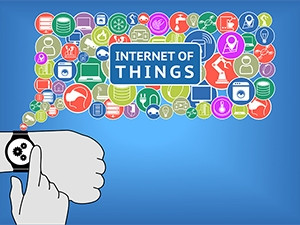
Around 90% of South African businesses believe that the Internet of things (IOT) is critical for the future success of organisations in their sectors. This according to findings from the fourth annual Vodafone IOT Barometer Report.
The survey found that 88% of South Africans polled believe that seeing real success and value from IOT requires significant financial and time investment. This was significantly higher than the global average which was only 79% for the same question. Globally 76% of all companies view IOT as critical for future success while 63% of IOT adopters are seeing 'significant' returns on investment.
"One of the most important findings from the South African companies is that the majority of local businesses who took part in the survey are looking at adopting IOT, and when they do so it's not out of experimentation but rather because IOT is strategically important to them in terms of their sustainability," says Vodacom's managing executive for IOT, Deon Liebenberg.
Overall, the report found that worldwide 89% of companies investing in IOT have increased their budgets over the last 12 months. IOT investment now accounts for 24% of the average IT budget - on a par with cloud computing or data analytics. The report also found that IOT technologies play a key role in mainstream business activities in an increasing number of companies.
The survey was conducted by Circle Research in April and May 2016 and involved more than 1 000 companies across South Africa, Australia, Brazil, Canada, China, Germany, India, Ireland, Italy, Japan, the Netherlands, South Korea, Spain, Turkey, the UAE, the UK and the USA. The vertical sectors that were surveyed globally included Retail (18%), Manufacturing (17%), Energy & Utilities (13%), Healthcare (12%), Transport & Logistics (10%), Public sector (10%), Automotive (8%), Consumer electronics (8%) and Industrials (4%).
More than 50 of the total respondents were medium to large sized South African companies. These polled higher than both the global and Europe, the Middle East and Africa averages across several different categories.
Creative IOT solutions
Liebenberg believes that socio-economic and business challenges are forcing local companies to be even more creative than their global counterparts in developing IOT solutions.
"Our unique socio-economic challenges are a key driver of the innovation and creativity which we see in many of the IOT solutions which have been deployed in this country. This is a reason why IT leaders see the adoption of IOT as being more critical for their future success," he says.
"The South African vehicle tracking market is a prime example, and one which has developed into one of the most sophisticated industries in the world. M-Health is another area where we are seeing unique technologies being used such as the Vodacom Stock Visibility Solution. This is a mobile application solution which monitors drug stock-outs in clinics. M-Health in South Africa has a very different context to m-Health in developed economies due to the societal challenges faced here," Liebenberg adds.
Other categories in which South Africa polled higher than the regional and global averages include confidence that employees have the requisite skills to manage IOT security and that technology is sufficiently robust to safely process data.
"This confidence that South African employees have the skills to manage IOT security goes back to the maturity of some of the verticals where IOT dominates in the local industry, such as the 20 year-old vehicle tracking industry. As these companies have evolved, they have invested in building capability and capacity in the components which make up the IOT value chain and have also developed a certain maturity. This has resulted in a specialist skills evolution in South Africa."
He says this is evident in the number of new machine-to-machine (M2M) connections in the local market, which has a compounded annual growth rate of more than 20%.
Vodacom has established a dedicated IOT business unit and has also identified IOT as a key strategic growth area. In May, Vodacom CEO Shameel Joosub told ITWeb that the telco had over 2.2 million SIM cards in "machines or things", which are not mobile phones and that the company was predicting big revenue potential from the IOT market. Liebenberg says that Vodacom added another 400 000 connected things in the first quarter of the new financial year.
Vodacom's IOT segment, which was previously called machine-to-machine, saw connections increase 28.2% year-on-year for the financial year ended 31 March. Revenue from IOT grew 20.7% to R556 million.
Share